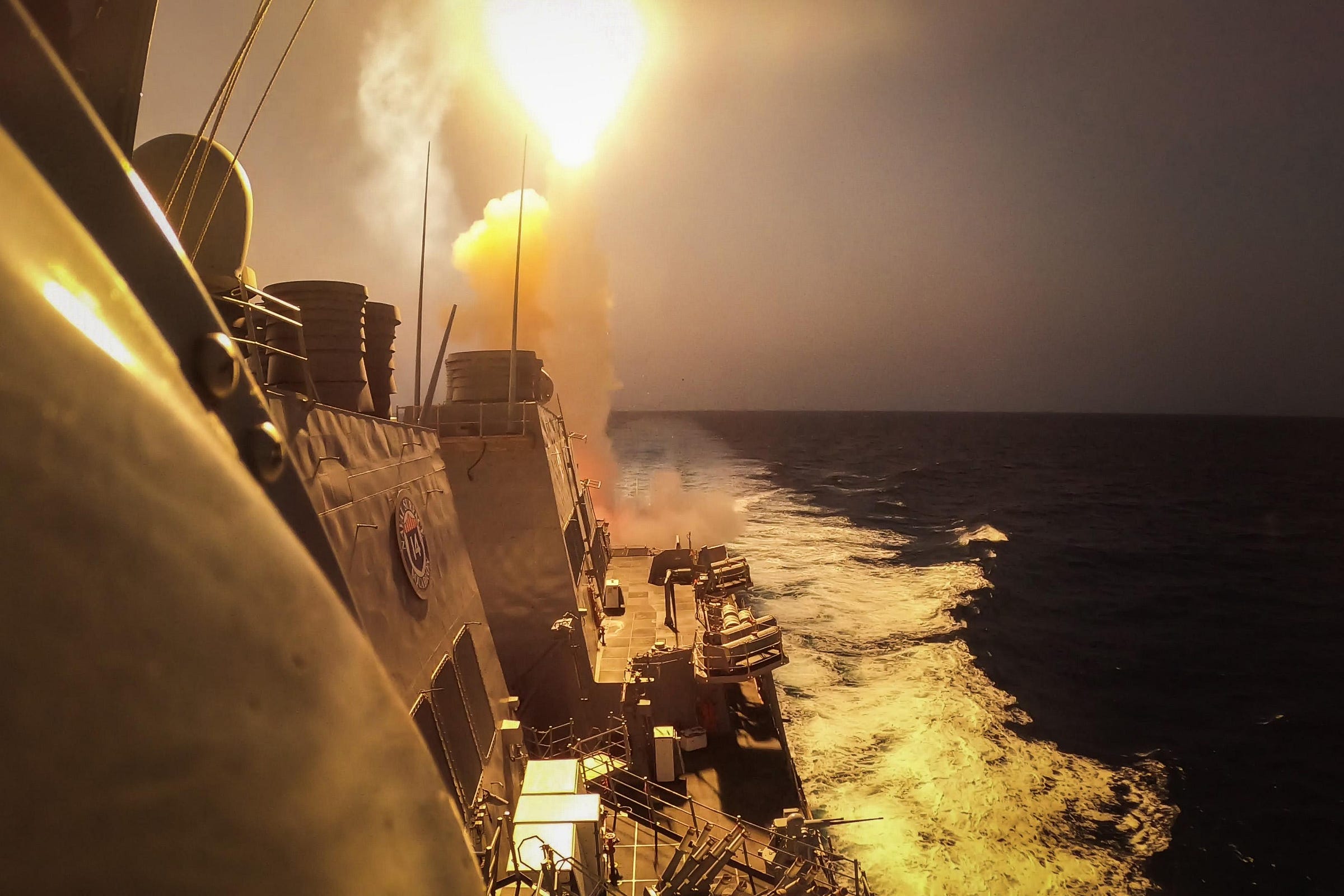No, You Can't Bomb Away a Problem Like the Houthis and Their Missiles
The only solutions are political

On Oct. 19, 2023, Houthi militants in Yemen launched missiles and armed drones at Israel in retaliation for Israel’s invasion of the Gaza Strip, itself retaliation for the Oct. 7, 2023 terror attacks perpetrated by Hamas.
The Houthi attacks widened. Soon, the militants were flinging missiles and drones at shipping in the Red Sea, eventually sinking two ships, damaging dozens more, hijacking a pair of vessels and compelling shipping firms to reroute sea trade. Instead of passing through the Red Sea to the Suez Canal, trade now largely travels around Africa, adding delay and billions of dollars in costs.
Periodic air and missile raids targeting Houthi forces, mostly led by two successive U.S. administrations, have so far failed to end the crisis—and it should be obvious why. Missile batteries (and likewise drone teams) dispersed across a vast and rugged terrain are notoriously difficult to destroy fast enough to outpace the ability of the aggressor group to make good those losses.
Targeted air strikes are the seemingly inexpensive and low-risk way of addressing a problem like the Houthis and their missiles. Which is why so many U.S. presidents persist in trying. But these strikes simply don’t work.
That was apparent in 1991, when a powerful U.S.-led coalition went hunting for Iraqi Scud missiles in order to forestall Iraqi attacks on Israel that risked drawing Israel into the war—thus shattering the coalition with its many Arab state members.
The seven-ton Scuds ranged as far as 500 miles with a 1,000-pound warhead. The Iraqis possessed hundreds of them, and launched dozens. Twenty-eight Americans died when a Scud barreled right through U.S. missile-defenses and slammed into their barracks in Dhahran.
U.S. Air Force Northrop Grumman E-8 radar planes scanned for the Iraqi transporter-erector-launchers. USAF Lockheed Martin F-16s and Fairchild A-10s hunted the TELs by day; Air Force Boeing F-15Es hunted them by night. The great Scud-hunt tied down a significant portion of coalition air power—2,500 sorties in all.
And yet the Scud launches continued. “Despite reports of some successes, postwar analysis indicated that no Scuds could be confirmed as destroyed,” retired U.S. Marine Corps colonel Mark Cancian noted in Proceedings, the unofficial professional journal of the U.S. Navy. “Iraqi decoys, the difficulty in getting accurate damage assessments, the short exposure times and the large geographic spaces involved combined to make the task difficult.”
Naval expert Norman Friedman was more blunt. “The Scud hunt was awful to start with,” he said.

Fog of war
Thirty-four years later, aerial technology has improved. Radars are better. More satellites watch from overhead. Drones are everywhere all the time.
But the world’s deserts are vast and even a seven-ton missile is small in that vastness, and the so-called “fog of war”—the inability of human beings and their machines to perfectly understand the world around them—hides missiles and drones as effectively as mountains, trees and urban clutter can do. “All actions in war will be based on incomplete, inaccurate, or even contradictory information,” the Marine Corps warned in its official doctrine.
As the Houthis consolidated control over Yemen in 2014 and 2015, a Saudi and Emirati coalition tried to the stop them. “During this civil war, air power was an important element in preventing further Houthi advances,” The Maritime Executive recalled in an op-ed. “But it was never able to turn the tide, neutralize the Houthi ability to launch ballistic and cruise missiles or push the Houthis back into their traditional homeland, the province of Saada in the northwest of Yemen.”
There’s no reason to believe ongoing U.S.-led air and missile attacks will succeed where the 1991 Scud hunt and the Saudi-Emirati air campaign 10 years ago both failed. You simply can’t bomb away a problem like the Houthis and their missiles.
The only real solution is mostly political, The Maritime Executive explained. “To halt Houthi missile and drone attacks requires a dismantling of Houthi political authority and the effective control mechanisms that the Houthis have developed to keep themselves at the top of the pile” in a war-torn land.
Read more:





